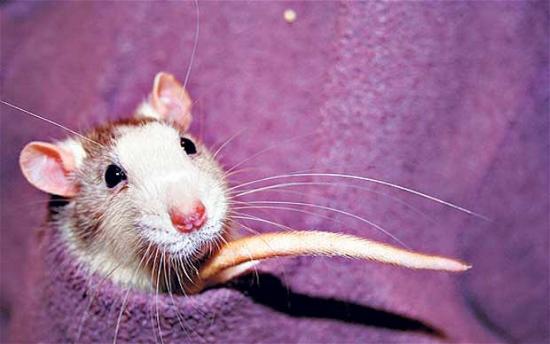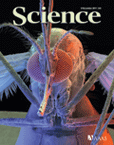
可爱不?一些人讨厌大鼠(图片来源于ALAMY)
没有几种动物具有比老鼠更坏的名声,然而最一项新研究证明,老鼠的确对同伴表现出情感共鸣?
科学家称,这完全是生物本能的一部分,这种“情感共鸣”行为植根于哺乳动物中需要哺育的后代与母亲的关系。
研究表明,即便存在以巧克力片放入另一个软管为替代选项,大鼠仍会打开闭门去释放被软管囚禁的同伴。
大鼠在没有奖励激励下做出这项积极的决定,除了同情之外,没有其它理由能解释这种提供帮助的行为。
这种行为的其它解释包括:大鼠会做出行动,以使被困的同伴停止警报呼叫;处于好奇心,它们被吸引到围困同伴面前。但是,芝加哥大学的研究人员推论出,上述解释站不住脚。大鼠的施救行为看似出于一种情感共鸣——终止同伴的囚禁困境。
看上去,动物具有关爱的本能,正如这项研究中,活动自如的大鼠不是简单地在情绪共鸣上敏感于同伴的困境,而是做出特意的解救行为。
该报告发现,大鼠对困窘反应的亲社会行为提供了有力证据,表明了施救行为的生物学根源是情感共鸣。
Peggy Mason教授称:“这项研究没有改变我对大鼠的认识,大鼠是社会性哺乳动物,能很好地适应其所在的生态位。换句话说,大鼠擅长于做老鼠,并探索到适于生活的环境。诠释这一点的证据是大鼠繁衍将近一百万年,比现代人类的历史还长一点。我认为,大鼠作为社会性哺乳动物能擅长于在生存环境中生长、发育和繁殖,因此,我不太惊讶于大鼠会帮助其它大鼠的基础发现。”
情感共鸣的进化根源发现于哺乳动物中需要哺育的后代与母亲的关系,母亲需要感觉子代何时会饥饿和寒冷等。令人惊讶的是,为了让另一只大鼠能吃到巧克力,大鼠会放弃取食巧克力。

 Empathy and Pro-Social Behavior in Rats
Empathy and Pro-Social Behavior in Rats
Inbal Ben-Ami Bartal, Jean Decety, Peggy Mason
Whereas human pro-social behavior is often driven by empathic concern for another, it is unclear whether nonprimate mammals experience a similar motivational state. To test for empathically motivated pro-social behavior in rodents, we placed a free rat in an arena with a cagemate trapped in a restrainer. After several sessions, the free rat learned to intentionally and quickly open the restrainer and free the cagemate. Rats did not open empty or object-containing restrainers. They freed cagemates even when social contact was prevented. When liberating a cagemate was pitted against chocolate contained within a second restrainer, rats opened both restrainers and typically shared the chocolate. Thus, rats behave pro-socially in response to a conspecific’s distress, providing strong evidence for biological roots of empathically motivated helping behavior.
文献链接:https://www.sciencemag.org/content/334/6061/1427.abstract?sid=9fe102f8-5212-4500-adec-083a3f28e451







